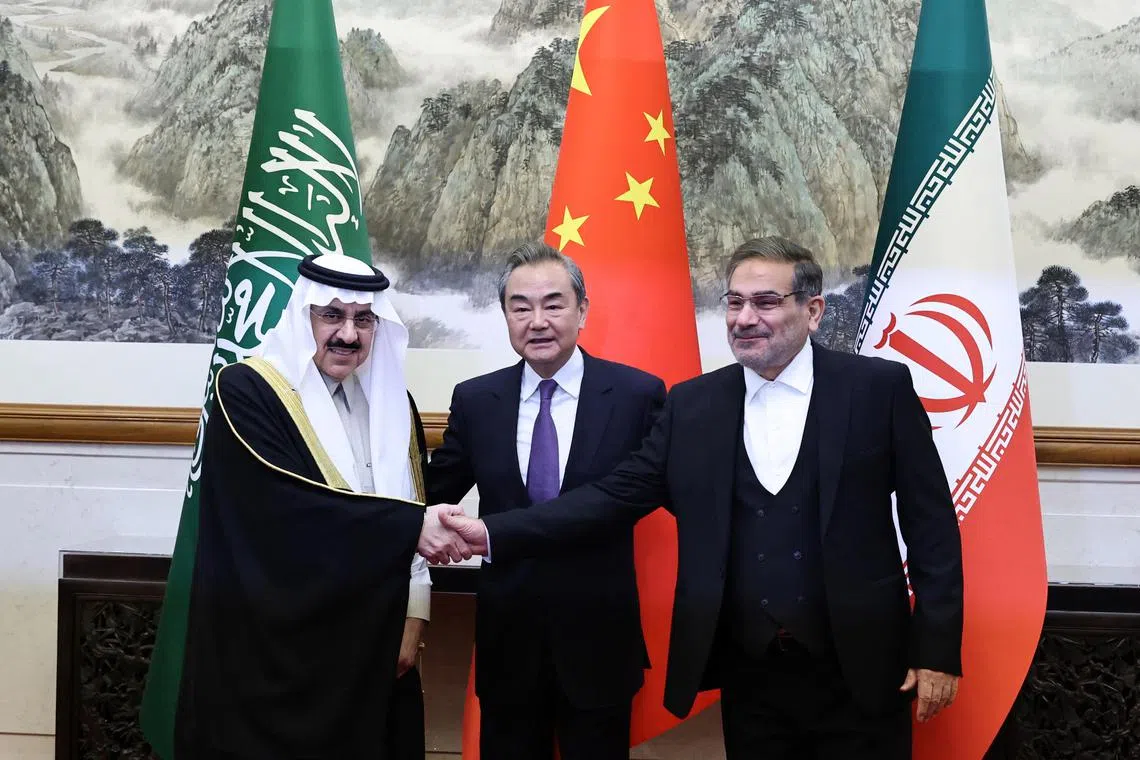For subscribers
Two cheers for China in the Middle East
It was good that Beijing stepped up to broker the Saudi-Iran deal. Whether China can continue to stabilise situations where local factors are the key drivers of conflict is an open question
Sign up now: Get ST's newsletters delivered to your inbox

(From left) Saudi Minister of State and national security adviser Musaed bin Mohammed Al-Aiban, director of China's Foreign Affairs Commission Wang Yi and Iran’s Supreme National Security Council secretary Ali Shamkhani on March 10, 2023.
PHOTO: REUTERS
The resumption of diplomatic relations between Saudi Arabia and Iran, announced in a joint trilateral statement in Beijing on March 10, was undoubtedly a diplomatic coup for China. It was the first time that China had successfully leveraged its growing presence in the Middle East to assert regional (as distinct from bilateral) influence. But it is not, as some commentators have claimed, a game changer either for China or the region.
The decision to reopen embassies in Riyadh and Teheran



